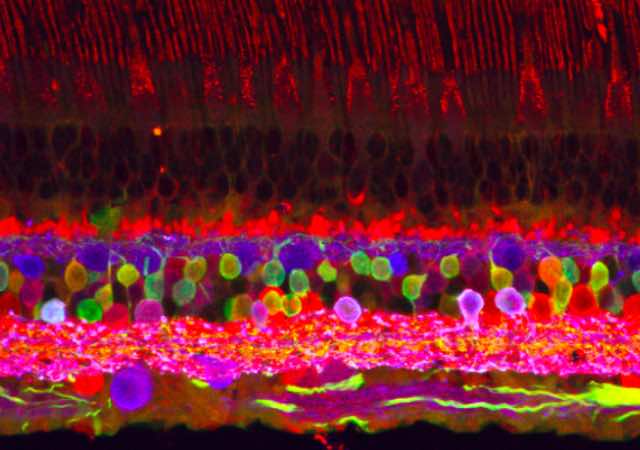The potential of optogenetics

Optogenetics is a technique that employs genetic methods combined with optical technology to control the activity of neurons by using light. Its particular feature is that, as it incorporates certain exogenous gene cells that codify light-sensitive proteins in the cells of the brain, their activity serves to activate or inhibit in a very precise manner. In this way, only selected neurons are affected.
The field of optogenetics has expanded rapidly amid the efforts to restore the visual function in blindness-causing diseases e.g. replacing damaged retinal photoreceptors with photosensitive proteins. One of the virtues of optogenetic-based therapies is that they are applied with minimally-invasive surgical techniques —through intraretinal or subretinal injections. However, many of these investigations are currently at a basic stage and there are few clinical applications in humans for the time being.
The B·Debate, Fighting Blindness. Future Challenges and Opportunities for Visual Restoration, has scheduled a session devoted entirely to optogenetics and artificial vision. The participants include Dr Eduardo Fernández, the Director of the Biomedical Neuroengineering Group of the Miguel Hernández University. He is targeting his efforts at the creation of an electronic device (intracortical visual prosthesis) that, connected to the brain, can interact with the retina and restore the sight of blind people. Another speaker at the session will be the Director of the Department of Ophtalmology & Visual Sciences of the New Jersey Medical School, Dr Marco Zarbin, a world authority in research into visual restoration treatments with stem cells.
Image courtesy of Dr. Gema Martínez-Navarrete